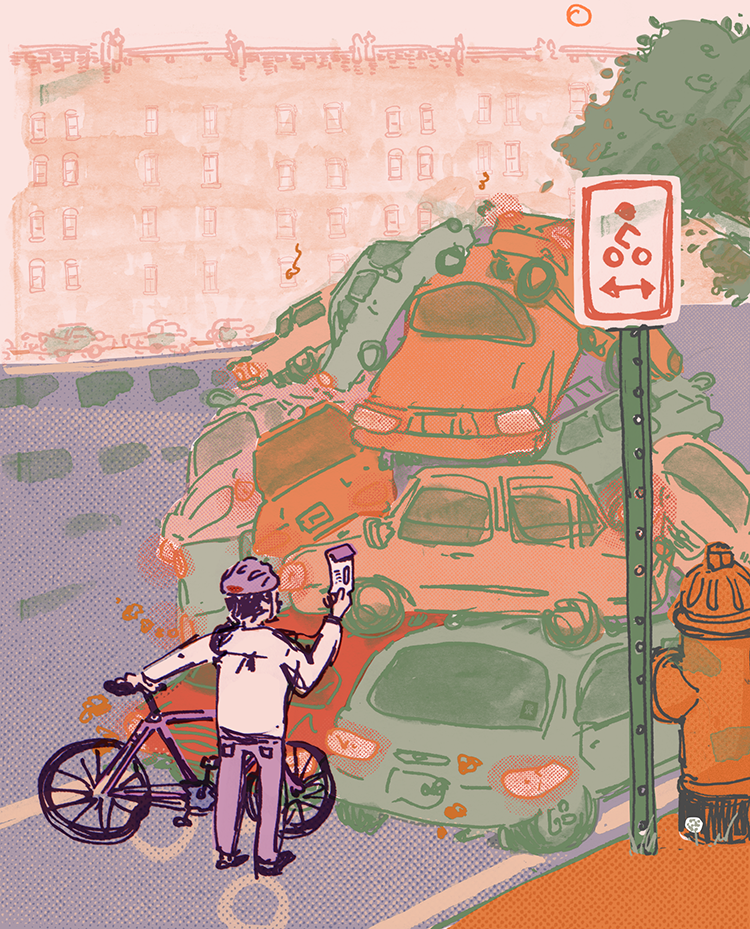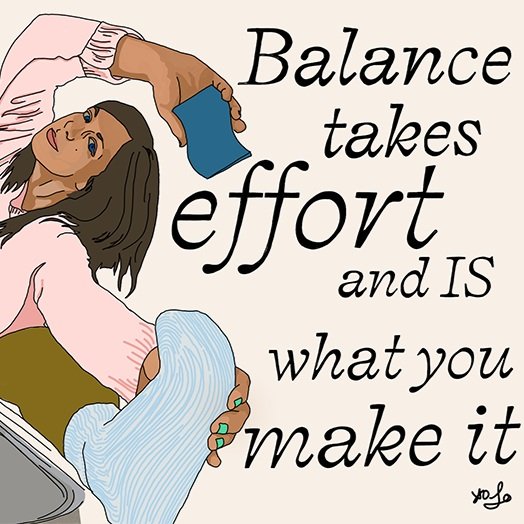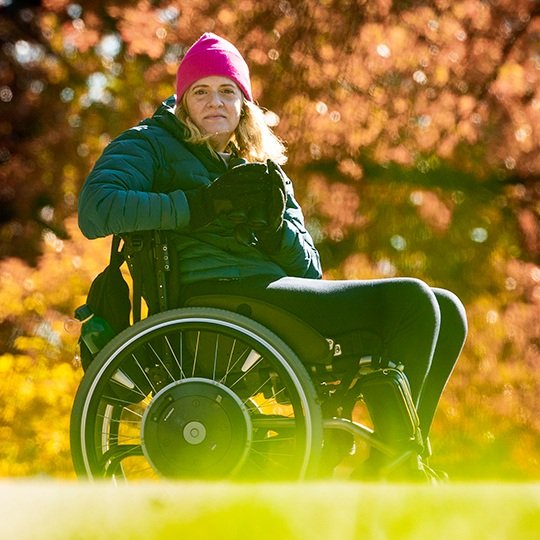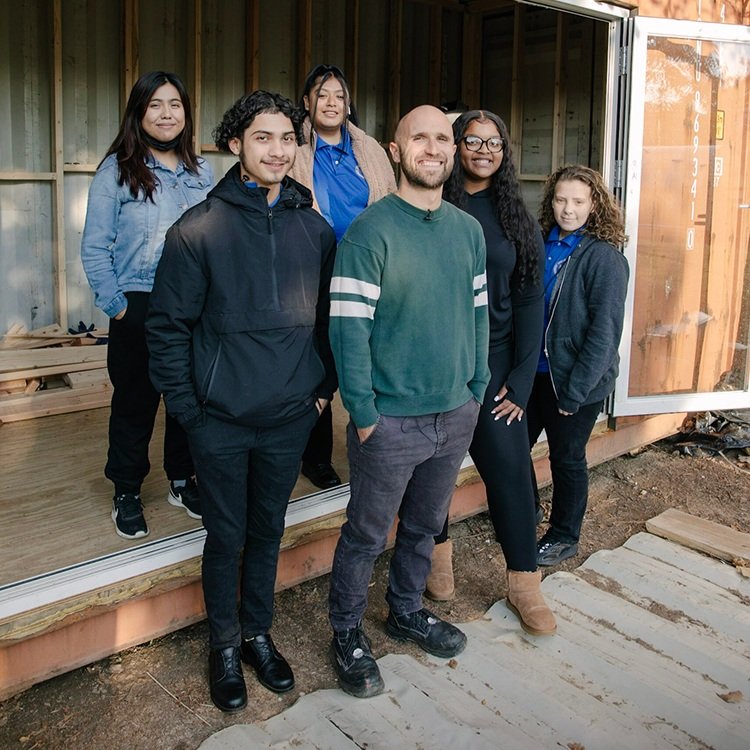Parking has ruined—and continues to ruin—cities.
Don’t believe me? Just go to any zoning board hearing or street engineering meeting—or better yet, talk to your neighbors. You will likely hear that there’s not enough parking in your part of town, and any changes to the streets, or the landscape, or bringing in more residents, will just make it worse.
Bad parking politics lead to gentrification and unsafe streets, and have done an untold amount of damage to the environment. Parking politics forces folks to make unsustainable transportation choices, and bad parking can block fire trucks and garbage trucks from accessing narrow city streets.
The main complaint I get from cyclists is that they don’t feel safe because motorists feel entitled to pull over and park in bike lanes on a whim. The lack of enforcement over daily violations creates a lawless car culture.
A survey in Portland, Oregon, found that 60% of residents were “interested but concerned” regarding commuting by bicycle. I think it’s safe to say that this reticence is because those in power too often value motor vehicle parking over everything—including human life.

For that reason, I’ve spent much of my time at the Bicycle Coalition of Greater Philadelphia trying to incrementally rein in parking politics as they relate to bicycle infrastructure. And over the past few months, we’ve worked to put together what could be a game changer at the Philadelphia Parking Authority (PPA)—a pilot program that will put enforcement officers on bicycles to specifically enforce bike and bus lane violations.
The program will take place in Center City and University City, from Columbus Boulevard to 40th Street, from Spring Garden to Bainbridge Street. It will be limited to five officers for the time being, with the understanding that it would likely take 35 officers to cover the entire city.
Getting officers on bikes to patrol bike and bus lanes would make the enforcement of these dangerous blockages more efficient.
Getting officers on bikes to patrol bike and bus lanes would make the enforcement of these dangerous blockages more efficient. It would also cut down on the potential involvement of armed police officers.
The pilot is partially based on a program that already exists in Toronto. Beginning in 2017, “bike lane guardian” and Toronto police officer Kyle Ashley began ticketing motorists parked illegally in bike lanes while getting around the city on two wheels.
After a successful campaign by Ashley, the Toronto Police Service expanded the bike parking team.
The team engaged audiences on social media, and in addition to saving lives on the streets, became a positive force online. Some of their ticketing actions have even gone viral on TikTok.
The announcement of the pilot in September 2021 made Philadelphia one of just a handful of cities where bike lane enforcement is conducted specifically by officers on bicycles.
Better ticketing of the motorists who disrespect laws for parking and idling in rights of way will, we hope, help cut down on this sort of behavior.
I recently began meeting and working with PPA board member and Republican City Commissioner Al Schmidt and Deputy Commissioner Michelle Montalvo on this issue, in an attempt to figure out how the PPA could better serve Philadelphians who ride bicycles and other mobility devices.
As is well known, Schmidt has become nationally recognized as one of local officials who successfully defended democracy last year during the presidential election, despite efforts to circumvent that process.
What’s especially encouraging about this change is that it is already having ripple effects. In October the Center City Residents’ Association (CCRA) sent a letter, signed by association president Richard Gross, to the Philadelphia Office of Transportation, Infrastructure and Sustainability asking for a new loading zone pilot to be done in conjunction with the PPA’s pilot.
“We read with interest the Philadelphia Parking Authority’s announcement that it was forming a special, bicycle-mounted unit of enforcement officers. Their mission: Write tickets for motor vehicles parked illegally in bike lanes and bus lanes in Center City and University City,” the letter read. “It’s worth noting that people parking in this way often don’t see any option, because there are no spaces available in the parking lane.”
To deal with this upcoming issue, CCRA recommends “creating one or two loading zone spaces per block in areas such as Pine and Spruce from Broad Street to 22nd Street, where there are bike lanes and where the parking lane is almost always at 100% occupancy or higher.” The loading spaces would revert to regular spaces overnight.
CCRA also noted that a survey was conducted and 83% of respondents agreed with the idea.
The Bicycle Coalition worked with Councilmember Kenyatta Johnson in 2019 to create a law that allows for free loading zones on blocks with bike lanes—incentivizing businesses to get new loading zones instead of allowing their customers and delivery drivers to park in bike and bus lanes.
These changes won’t fix the parking issue, of course. Free and inexpensive parking will continue to wreak havoc on cities. Until we come to terms with what free street parking and millions of parking spaces on our streets have done, real changes can’t occur. But in the meantime, if enforcement like this is successful, there may be more incentive to do the right thing in the future.








